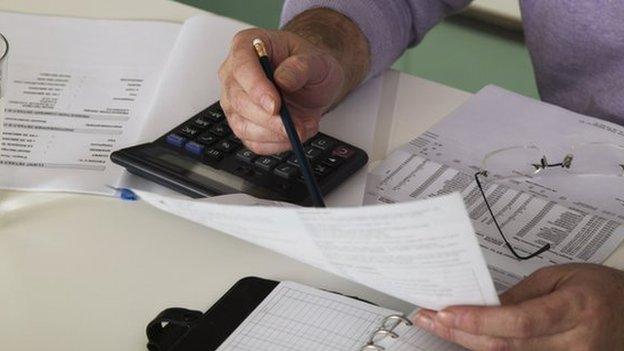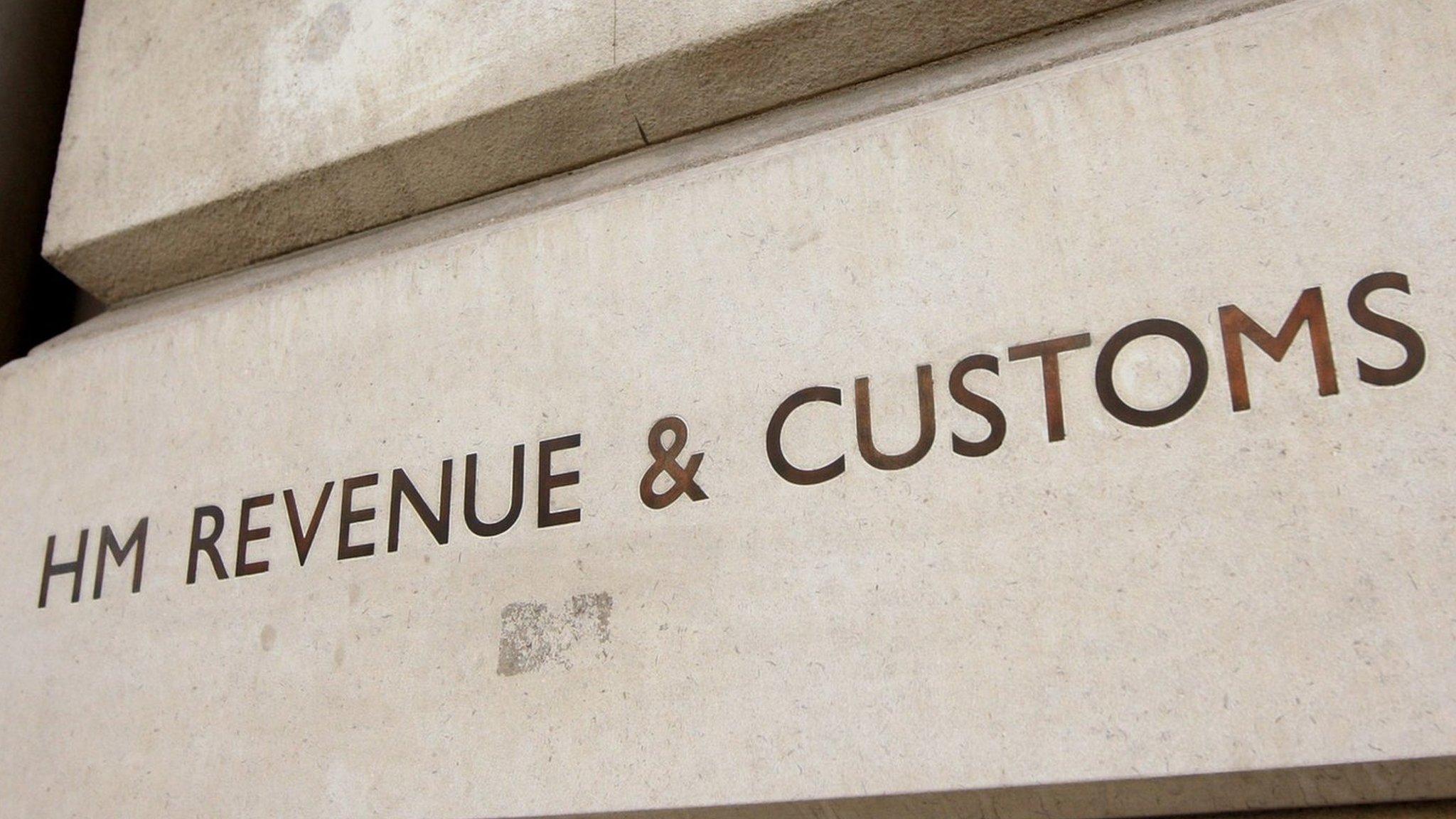Problem debt costs the UK economy £8.3bn, charity warns
- Published

Approximately 2.9 million people in the UK are estimated to have some form of problem debt
A charity says the problem of mounting personal debt is costing the British economy £8bn annually, due to the burden it puts on state services.
StepChange, which hears from half a million people in financial difficulty each year, said dealing with housing problems and job losses due to stress made up the bulk of that figure.
It added the government could save £3bn if it offered people effective help.
The Treasury said it had "taken a series of steps" to help those in debt.
StepChange, which offers free advice on how to overcome debt problems, analysed the records of more than 100,000 of its clients to calculate how much so-called "problem debt" was costing the UK.
Problem debt is defined as debt that people have taken on but cannot afford to repay as required.
StepChange estimated that the strain it puts on mental health, employment and housing amounted to £8.3bn each year.
The biggest cost caused by problem debt, the charity said, was having to rehouse - and provide higher housing benefit payments for - people who lose their home after falling behind on mortgage or rent payments.
The next highest set of costs related to employment. StepChange estimated a total £2.3bn cost for the money paid by employers and the authorities when someone takes time off work because of the stress of dealing with debt, and the benefits paid if the job is subsequently lost.
Other costs it factored in were for NHS mental health treatment, payments prompted by divorce and other relationship breakdowns, and the costs of children being taken into care
'Brake on potential'
Approximately 2.9 million people in the UK are estimated to have some form of problem debt, and StepChange said it expected there would have been a 20% year-on-year rise in those using its services by the end of 2014.
The charity's chief executive, Mike O'Connor, said problem debt was a "brake on people's capacity to work, or to return to work, a brake on aspiration and a brake on potential".
StepChange also called for a government action plan on debt to help people through times of crisis, encourage more saving and support more free advice.
A spokesman for the Treasury told the BBC that "a key part of the government's long-term economic plan was to boost hardworking people's financial security at all stages of life".
He said the Money Advice Service was funding and co-ordinating a range of debt advice services and that the Financial Conduct Authority had been given "robust powers" to protect people using debt management firms.
Joanna Elson, chief executive of the Money Advice Trust, which runs the National Debtline, said: "The human cost of this problem on people's health, relationships and quality of life simply cannot be calculated.
"Free advice provided at the earliest stage possible is the best way to limit the damage that unmanageable debt is causing, both to our lives and our economy."
- Published2 October 2014

- Published8 May 2014

- Published10 June 2014

- Published30 May 2014
